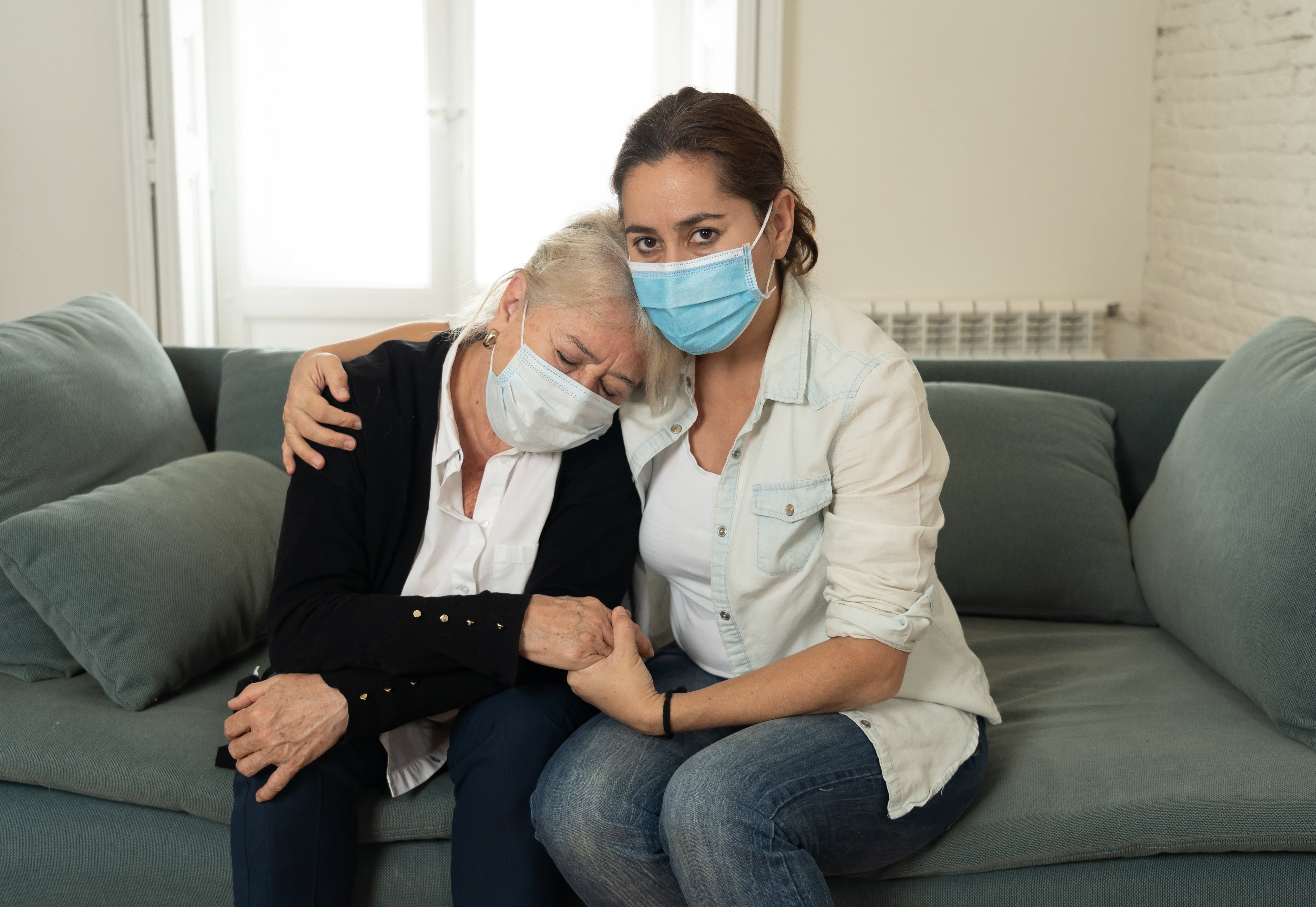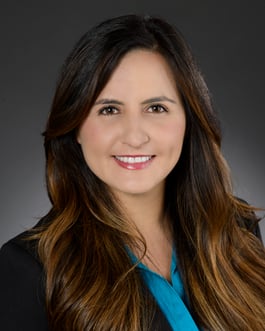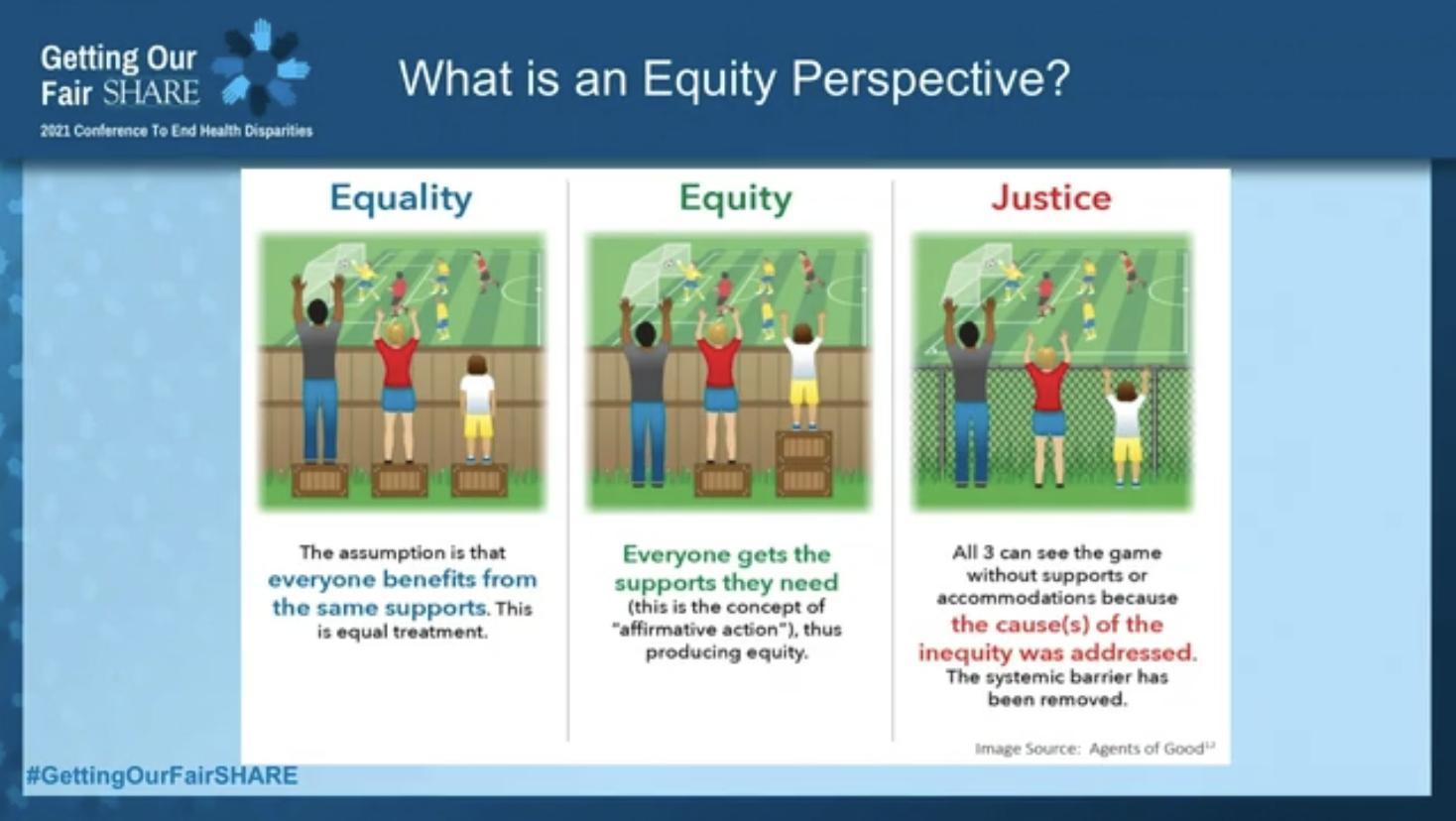Health Equity in Colorado Cancer Care
5 min read

A Conversation with Oncologist Dr. Mabel Mardones, Rocky Mountain Cancer Centers
Dr. Mabel Mardones is an oncologist at Rocky Mountain Cancer Centers with expertise in breast cancer, which has a higher mortality rate among Hispanic women. Dr. Mardones recently participated in Getting Our Fair SHARE: 2021 Conference to End Health Disparities in the eye-opening panel discussion Latinx Same Race.
When it comes to receiving the best cancer care in Colorado, most cancer patients face obstacles of one sort or another, whether it’s a long drive from a rural area to receive daily cancer treatments or difficulty getting time off work for surgery or recovery. But certain populations, primarily minorities, face greater and more numerous obstacles to receiving life-saving cancer prevention, screening, and care. For Rocky Mountain Cancer Centers oncologist Dr. Mabel Mardones, addressing issues of health disparities in cancer care is both personally and professionally imperative.
 As a woman and a Latinx, Dr. Mardones could, fairly easily, find herself on the receiving end of health disparities like lack of health insurance, poverty, physician biases or environmental factors that contribute to cancer, such as polluted air and water, which impact poor and minority communities more heavily than affluent, predominantly-white communities. Yet, as a physician for a cancer program that makes huge efforts at addressing inequities and, as a respected voice in the medical community, she is more often in a position to raise awareness and instigate change. And, it’s a role she embraces completely – and skillfully – both as an educator to her patients and as a public speaker. She recently participated in a panel discussion on Latinx Cancer Care at Getting Our Fair SHARE: 2021 Conference to End Health Disparities.
As a woman and a Latinx, Dr. Mardones could, fairly easily, find herself on the receiving end of health disparities like lack of health insurance, poverty, physician biases or environmental factors that contribute to cancer, such as polluted air and water, which impact poor and minority communities more heavily than affluent, predominantly-white communities. Yet, as a physician for a cancer program that makes huge efforts at addressing inequities and, as a respected voice in the medical community, she is more often in a position to raise awareness and instigate change. And, it’s a role she embraces completely – and skillfully – both as an educator to her patients and as a public speaker. She recently participated in a panel discussion on Latinx Cancer Care at Getting Our Fair SHARE: 2021 Conference to End Health Disparities.
Calm, unflappable, well-spoken, and culturally-sensitive, Dr. Mardones is gifted at making complex subjects understandable.
What Factors Contribute to Health Disparities in Cancer Care?
During the panel discussion, Dr. Mardones pointed out that the Latinx population has lower occurrence rates of breast cancer than the general population but higher mortality rates, a sobering statistic that very likely holds true for other minorities. The reasons for this health disparity are numerous and interwoven. Dr. Mardones lists issues like:
- Late detection, which leads to poorer prognosis.
- Lack of awareness and lack of access to health care means fewer routine cancer screenings.
- In some cases, Latinx patients face biologically more-aggressive tumors due to genetics.
- Physician biases that might lead a cancer doctor to overlook the cutting-edge treatment options of clinical trials for minority patients.
- Financial difficulties, which may or may not include lack of health insurance. Even with health insurance, cancer treatment can be so expensive as to be out of reach for those with low economic means.
Additionally, Dr. Mardones said, there are cultural biases within the Latinx community that can work against cancer treatment. One of these is distrust of the medical establishment. Another is a belief called fatalismo. This is a fatalistic, defeatist attitude that death is inevitable, which many cancer patients – of all races – have to overcome at some point. But, while many patients find themselves saying things like “none of the treatments will help me” or “I’m going to die of something anyway,” Dr. Mardones encounters it more in Latinx patients, where there is less faith in science and medical treatment. This means that before she can even begin treating cancer for some of her Latinx patients, she has to first convince them that treatment is worthwhile. “It takes a concerted effort by the doctor to overcome their reluctance,” Dr. Mardones said. “Many patients have the belief that the end will come regardless of what interventions we offer.”
Despite the truly life-or-death nature of these conversations, Dr. Mardones never takes an authoritarian stance with her patients. “The first step is building trust,” she said. “The second step is education. Many physicians don’t take the step of education because it takes more time incorporating family members and significant others.”
For Dr. Mardones, though, education is not just part of her job: It is her job. “My role is to be an educator – even as an oncologist. Everything is about education. I’m a facilitator and an educator. And then I want to empower them to make their own choices.”
It’s an approach that’s not only more rewarding from an interpersonal perspective, it also creates a better attitude toward cancer treatment. When patients are empowered to make choices, “they’ll be more committed to treatment.”
How RMCC Works Toward Health Equity in Cancer Care
The goal of the US Oncology Network is to make high-level cancer care available to patients close to home, removing the necessity to relocate or travel huge distances to receive quality care. It allows cancer doctors in participating clinics, like RMCC, to enroll their patients in clinical trials across the country. It’s one of the things Dr. Mardones is proud of when it comes to RMCC’s approach to health disparities.
“We are trying to address these issues head-on,” she said. “Many of my partners speak Spanish. We’re focused on research and providing robust therapy. We want minority populations to know that we are equipped to provide specialized medical oncology care, and that they have options for their treatment.”
Additionally, “RMCC incorporates the concept of equal care for all and accessibility for all patients,” said Dr. Mardones. “I think it’s important for physicians – as part of our Hippocratic oath – to provide the same quality care to all patients.”
Dr. Mardones thinks the first step to providing equal care is self-examination – by the physician. “If we recognize that all of us have inherent biases when we provide care, then we can start to dismantle them.”
Since language can be a barrier not just to communication but also to quality and types of treatments, RMCC offers translation of all materials and medical appointments for every language. To do this, they use a machine they can bring into the exam room and set to any language. In fact, this leap in accessibility is one of the positive practices that came about in part because of the pandemic when human translators couldn’t attend appointments.
Still, Dr. Mardones acknowledges that no matter how effective RMCC or US Oncology Network are at providing equal care to all patients, fixing health disparities requires much more widespread change than individual patient treatment. “If we don’t address issues outside health care, we can’t improve health outcomes,” she said, referring to social determinants of health, which include not only medical care but many other factors like education and behaviors. “We have to face these things and try to find collective solutions and change the system. No one should have to sell their home or not have a retirement fund in order to receive cancer care.”
WHAT IS HEALTH EQUITY? According to a Robert Wood Johnson Foundation report, “Health equity means that everyone has a fair and just opportunity to be as healthy as possible. This requires removing obstacles to health such as poverty, discrimination, and their consequences, including powerlessness and lack of access to good jobs with fair pay, quality education and housing, safe environments, and health care.”
On the opposite side, are health disparities, which are preventable “differences in the burden of disease, injury, violence, or opportunities to achieve optimal health that are experienced by socially disadvantaged populations.”

If you‘d like to get involved in improving health disparities, Dr. Mardones recommends Share Cancer Support, which helps women in underserved communities during cancer treatment, and the Latino Cancer Institute, which conducts research and advocacy to reduce the burden cancer places on Latinx communities.